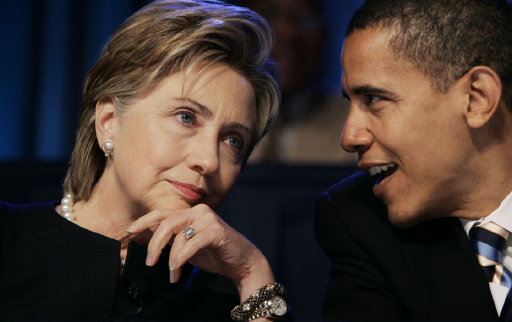Clinton’s Foreign Policy: Savvy, or Sullied?
BY JOE LENOFF
Over his five years in office, President Obama’s foreign policy has gained a notorious reputation as Woodrow Wilson-esque idealism—a sort of intentional naivety used to shape the world as it should be, rather than grapple with what it is. On the other hand, Hillary Clinton is lauded as a foreign policy pragmatist, someone who understands the nuts and bolts of the world, and prefers prose to the president’s poetry. However, pundits and academics frequently criticize Obama’s foreign policy without ever mentioning Clinton’s role as Secretary of State. It is an expression of Hillary Clinton’s political acumen that she receives much of the praise for the Obama administration’s first-term foreign policy, while receiving little of the blame.
One of Clinton’s major accomplishments as Secretary of State was the “Pivot to Asia,” a hugely important shift in the defensive and diplomatic efforts of the United States with implications that will last well into the future. To list just one aspect of the Pivot, according to the U.S. Energy Information Administration more than half of the world’s shipping goes through the South China Sea. The Pivot, though, is not the flashiest of accomplishments. It is a bit “inside-baseball” and most people would struggle to think of another signature accomplishment of Clinton’s tenure at Secretary of State. Yet, Clinton maintains her reputation for foreign policy savvy. Clinton’s excellent reputation may be well deserved, but it is remarkable that her reputation is so pervasive that the American people are willing to accept it without more hallmark achievements.
Even more remarkable than building a reputation out of her less-than-lustrous tenure as Secretary of State is her ability to avoid blame for soured policies she helped implement. U.S.- Russian relations are a prime example of this. The Obama administration, with Clinton as top diplomat, decided early on to pursue a “reset” in relations with Russia. Unfortunately, recent events—most notably the Crimean invasion—have shown that this policy has not developed to the United States’ liking. However, while Republicans were relishing in the President’s failure, describing him (incorrectly) as “weak” and proclaiming “I told you so!”, Clinton’s role in shaping the reset policy was not widely discussed. Clinton was able to maintain her reputation for toughness, even though her views were ostensibly a large part of the United States’ “weak” Russia policy.
Turning south, Syria provides another example of the strength of Clinton’s reputation. After President Obama decided not to bomb Syria for using chemical weapons in 2013, a theory started to circulate that it was perhaps better that the President decided not to attack Syria. According to this line of thinking, the attack would have been too late anyway. If the United States had put its weight behind the rebels in 2011 or 2012, then maybe it could have done something, but because of the President’s (and, seemingly, only his) dawdling and lack of foresight, Syria descended into chaos. Tabling for now the problems with this theory, it is amazing that Clinton’s role in the Obama administration’s “dawdling” was never seriously critiqued. Theoretically, it would have also been Clinton’s job to anticipate and plan for the outcomes of the Syrian crisis, but, again, only President Obama was accused of incompetency and shortsightedness, not Clinton.
The list of Clinton’s politically consequence-free mistakes continues (Libya, Iran, North Korea, etc.), but there is one glaring exception: Benghazi. Although there were political consequences in this case, they did not last long. Republicans attacked Clinton and the Obama administration mercilessly, yet for all of the punditry and the hearings called to “investigate,” their attacks were never a real challenge to Clinton’s reputation. It quickly became clear that the accusations were politically motivated and calculated in an attempt to win votes in Members’ districts while tarnishing Clinton’s reputation. Clinton rode out the tempest in a teacup, and was even able to showcase her resolve in the very hearings called to denounce her.
The president is head of state, commander in chief, and the most visible person in any administration. He (hopefully one day she) takes most of the blame and most of the credit. That being said, others in the administration are not blameless: Katherine Sebelius is constantly under attack for the Affordable Care Act, Colin Powell would have had a real shot at the presidency were it not for the Second Gulf War, and Hank Paulson is still often blamed for precipitating the financial crisis of 2008. But Hillary Clinton, despite the attention generated by her probable 2016 run for president, continues to avoid blame for the fallout of the foreign policy decisions during her term as secretary of state. With the possible exceptions of President Obama and Chris Christie, no single politician is discussed with the same frequency as Clinton, but popular discourse avoids the single biggest question of her resume: was she a good secretary of state?
